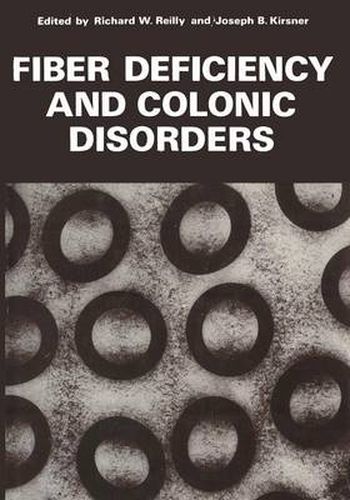Readings Newsletter
Become a Readings Member to make your shopping experience even easier.
Sign in or sign up for free!
You’re not far away from qualifying for FREE standard shipping within Australia
You’ve qualified for FREE standard shipping within Australia
The cart is loading…






This title is printed to order. This book may have been self-published. If so, we cannot guarantee the quality of the content. In the main most books will have gone through the editing process however some may not. We therefore suggest that you be aware of this before ordering this book. If in doubt check either the author or publisher’s details as we are unable to accept any returns unless they are faulty. Please contact us if you have any questions.
Epidemiologists, on the basis of studies carried out chiefly in Africa, have suggested that depletion of fiber in the modern Western diet affects health adversely. D. P. Burkitt, who has been in the forefront of this investigation, has included among the diseases of civilization hiatus hernia, ischemic heart disease, cholelithiasis, polyps of the colon, and cancer of the colon. All of these conditions appear to have the same geographic distribution. In these areas, the diets were characterized by increased amounts of fat and meat protein, and by an apparent deficit of fiber. It is noteworthy that while an increased intake of refined sugars also has been implicated in the Western diet, the consumption of sugar and other sweetners in the United States actually has remained fairly stable since about 1925 when the use of complex carbohydrates in the form of starchy foods began to decline. The mechanism whereby deficiency of fiber in the diet contributes to the development of colonic diverticula, presumably is by facilitating the development of segmentation of the colon and pockets of intracolonic high pressure zones associated with prolonged transit time of bowel content. Preliminary therapeutic observations, furthermore, have suggested that the addition of fiber in the form of bran to the diet may promote regularity of bowel function and perhaps lessen the likelihood that new diver ticula will be formed after the resection of involved colonic segments.
$9.00 standard shipping within Australia
FREE standard shipping within Australia for orders over $100.00
Express & International shipping calculated at checkout
This title is printed to order. This book may have been self-published. If so, we cannot guarantee the quality of the content. In the main most books will have gone through the editing process however some may not. We therefore suggest that you be aware of this before ordering this book. If in doubt check either the author or publisher’s details as we are unable to accept any returns unless they are faulty. Please contact us if you have any questions.
Epidemiologists, on the basis of studies carried out chiefly in Africa, have suggested that depletion of fiber in the modern Western diet affects health adversely. D. P. Burkitt, who has been in the forefront of this investigation, has included among the diseases of civilization hiatus hernia, ischemic heart disease, cholelithiasis, polyps of the colon, and cancer of the colon. All of these conditions appear to have the same geographic distribution. In these areas, the diets were characterized by increased amounts of fat and meat protein, and by an apparent deficit of fiber. It is noteworthy that while an increased intake of refined sugars also has been implicated in the Western diet, the consumption of sugar and other sweetners in the United States actually has remained fairly stable since about 1925 when the use of complex carbohydrates in the form of starchy foods began to decline. The mechanism whereby deficiency of fiber in the diet contributes to the development of colonic diverticula, presumably is by facilitating the development of segmentation of the colon and pockets of intracolonic high pressure zones associated with prolonged transit time of bowel content. Preliminary therapeutic observations, furthermore, have suggested that the addition of fiber in the form of bran to the diet may promote regularity of bowel function and perhaps lessen the likelihood that new diver ticula will be formed after the resection of involved colonic segments.